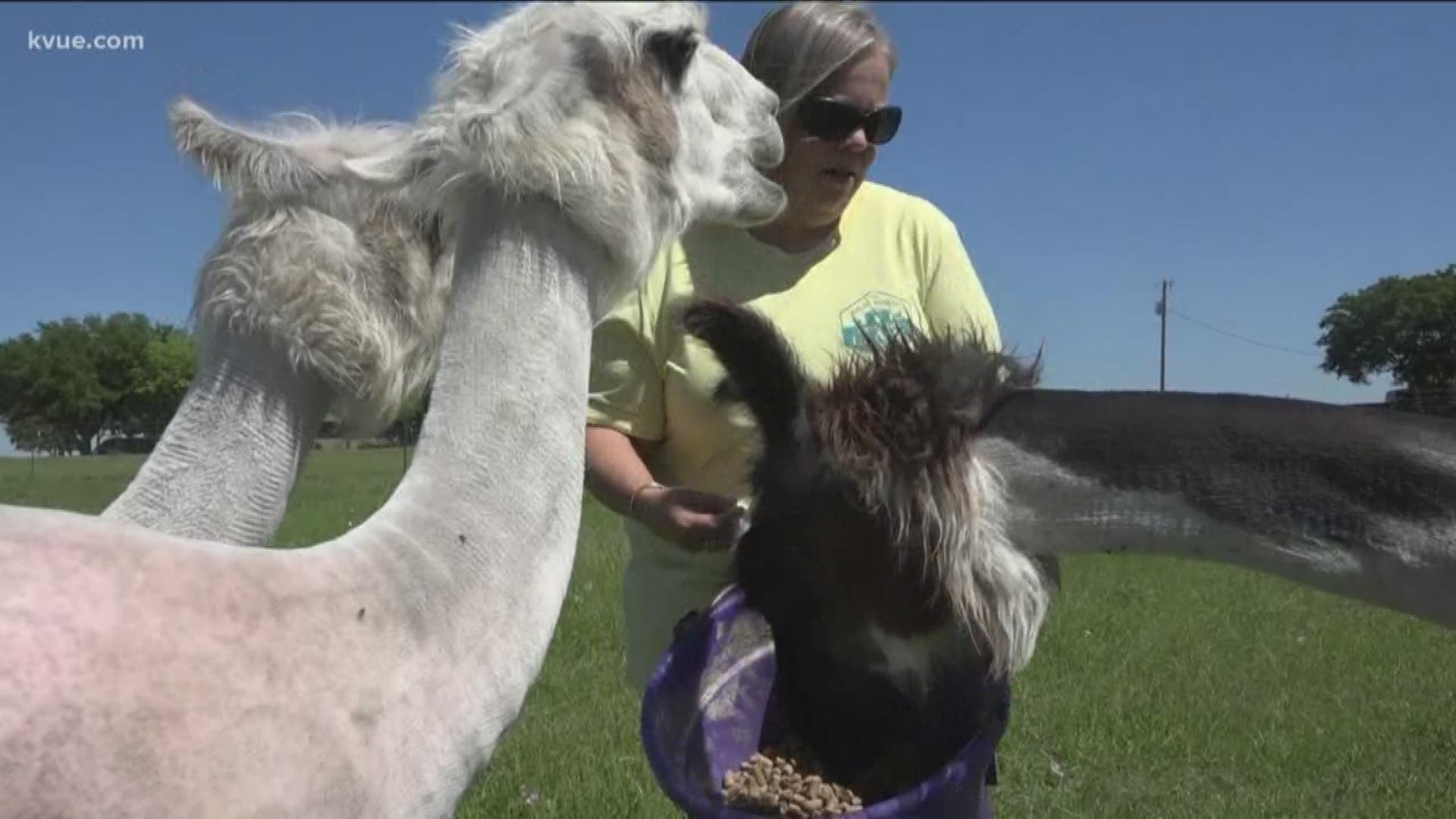AUSTIN, Texas — A research team of scientists from The University of Texas at Austin, the National Institutes of Health, and Ghent University in Belgium have found a potential source for COVID-19 treatment: a llama.
Specifically, a llama named Winter.
Scientists were inspired by antibodies produced by Winter to develop their antibodies against SARS-CoV-2. Winter is four years old and still living on a farm in the Belgian countryside operated by Ghent University’s Vlaams Institute for Biotechnology.
According to a release from UT, researchers were able to link two copies of a special kind of antibody produced by llamas to create a new antibody that binds tightly to a key protein on the coronavirus that causes COVID-19. This protein is called the "spike protein," and allows the virus to break into host cells.
Initial tests indicate that the llama antibody blocks viruses that display this spike protein from infecting other cells in a culture test.
“This is one of the first antibodies known to neutralize SARS-CoV-2,” said Jason McLellan, associate professor of molecular biosciences at UT Austin and co-senior author, referring to the virus that causes COVID-19.
RELATED:
The research team is preparing to conduct preclinical studies in animals such as hamsters or nonhuman primates, with the hopes to soon test humans. The goal is to develop a treatment that would help people soon after infection with the virus.
“Vaccines have to be given a month or two before infection to provide protection,” McLellan said. “With antibody therapies, you’re directly giving somebody the protective antibodies and so, immediately after treatment, they should be protected. The antibodies could also be used to treat somebody who is already sick to lessen the severity of the disease.”
The research team will report their finding of the potential avenue for a coronavirus treatment involving llamas on May 5 in the journal, "Cell." You can read the paper online here. It has been peer-reviewed but is undergoing final formatting.
PEOPLE ARE ALSO READING:

